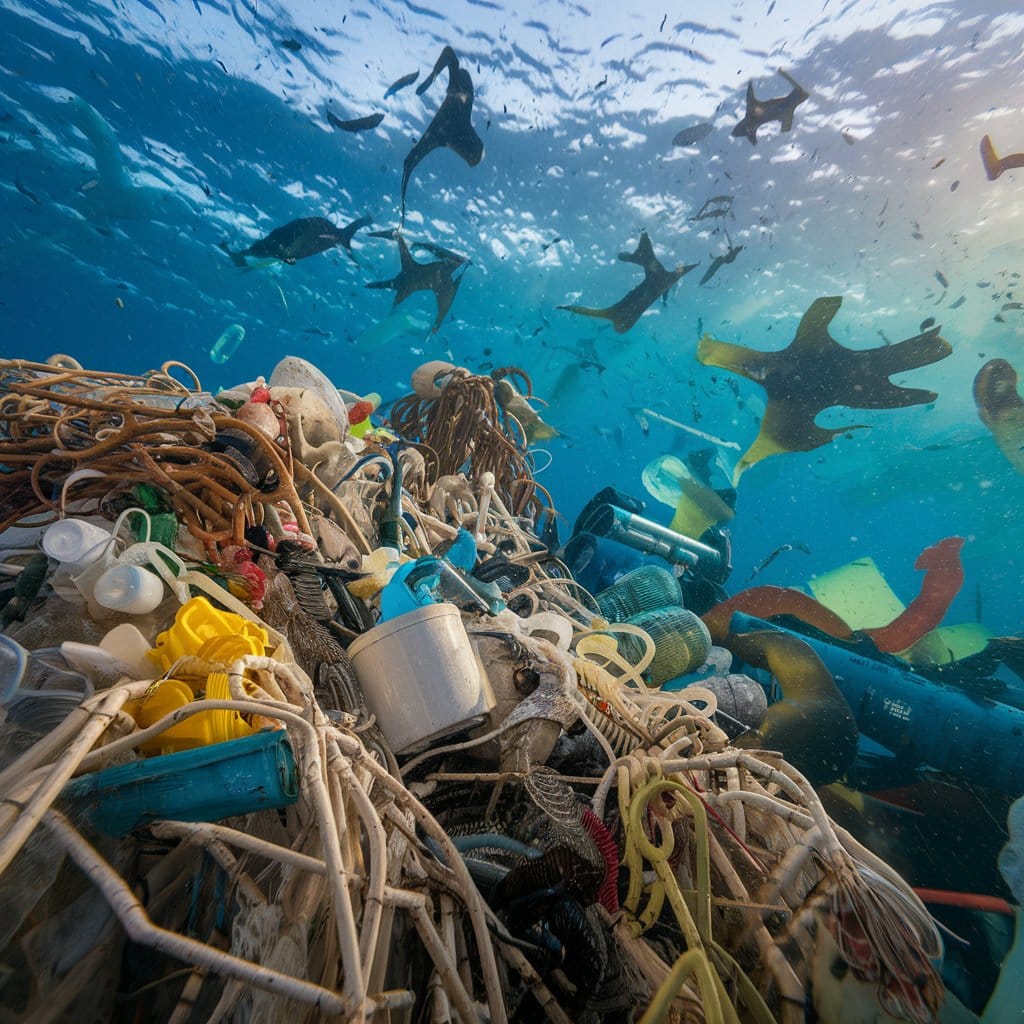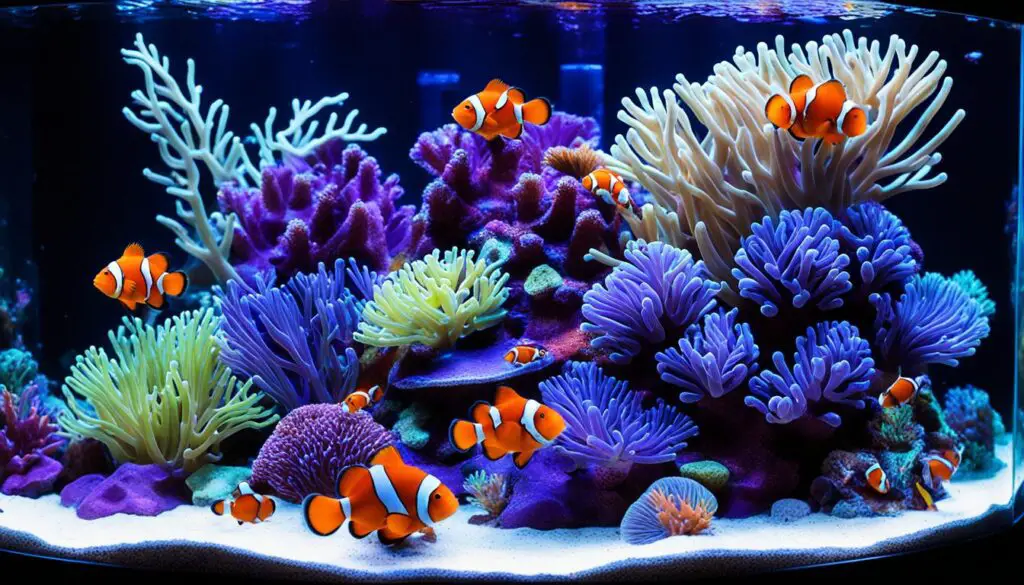Are Octopuses Friendly
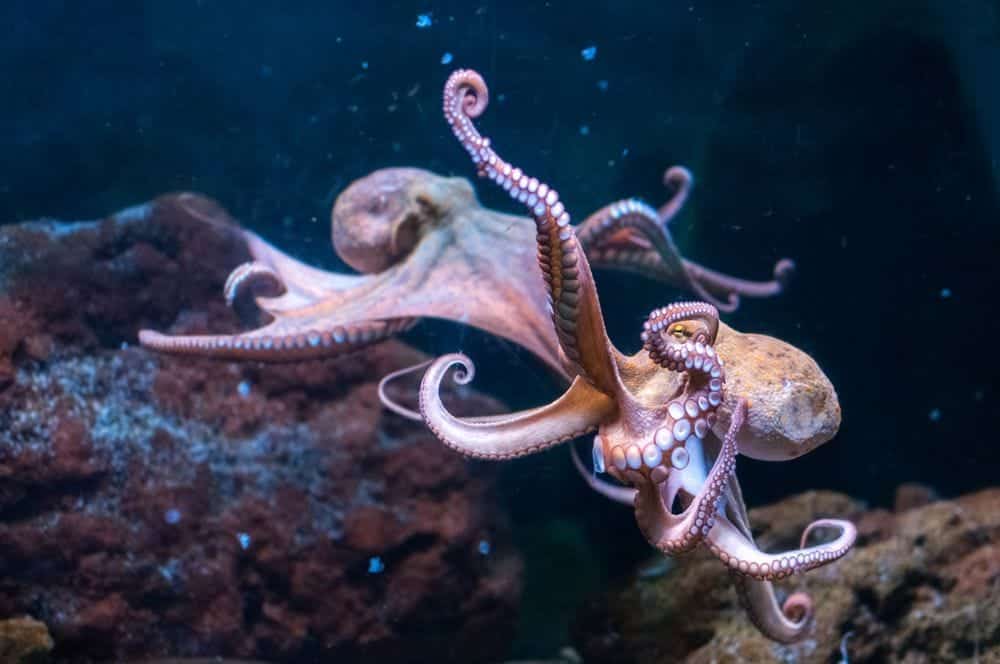
Introduction
Are Octopuses Friendly: Octopuses, those remarkable and enigmatic denizens of the deep, have long captivated the imagination of scientists and ocean enthusiasts alike. These creatures, with their intricate appearance and extraordinary intelligence.
Octopuses belong to a group of animals known as cephalopods, which includes squids and cuttlefish. Their evolution has led to a complex set of behaviors and adaptations, making them some of the most intriguing creatures in the ocean. While they are solitary by nature and often exhibit reclusive tendencies, octopuses have displayed a wide range of behaviors that hint at a capacity for social interaction.
In recent years, scientific studies have shed light on the remarkable intelligence and problem-solving abilities of octopuses. Some octopuses have even been observed interacting with divers in apparent acts of curiosity, sparking debate about their potential for forming bonds with humans and other animals.
Their solitary lifestyle and occasional aggression suggest that their interactions can be highly context-dependent. This complexity makes the study of octopus behavior a captivating field of research, raising questions about the nature of their relationships with other creatures and, indeed, with us.
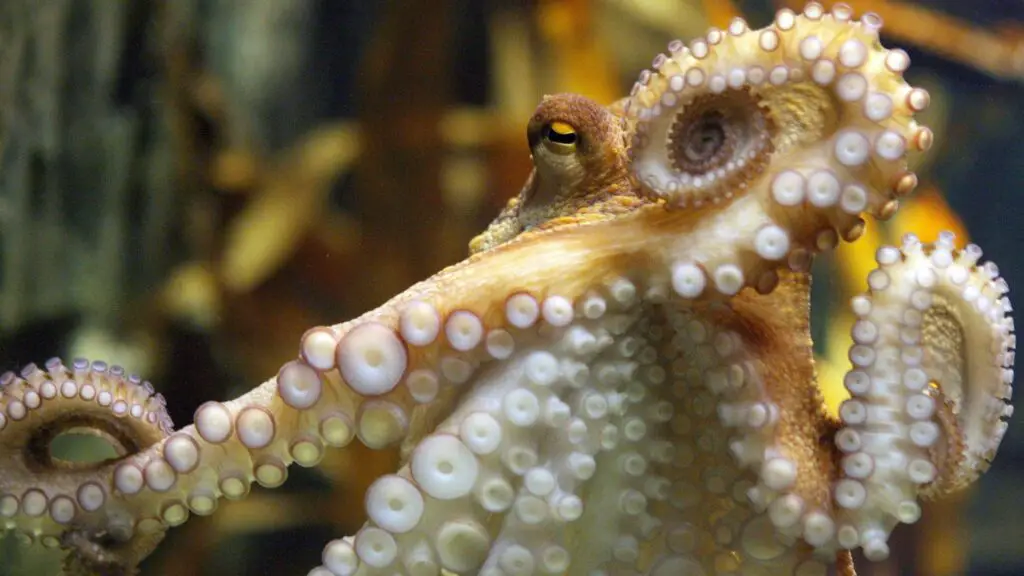
Are octopus friendly to humans?
Thankfully, the Giant Pacific Octopus is known to be rather shy and usually friendly towards humans, rarely using its dangerous features to inflict harm.
In various encounters with divers and researchers, certain octopuses have displayed curiosity by approaching humans without signs of aggression. They may reach out tentatively, touch or explore the divers, and even playfully interact. These interactions, while not necessarily indicative of friendship in the human sense, do reveal a level of interest and non-hostile engagement.
However, it’s important to note that octopuses are also known for their variability in behavior. Their reactions can differ widely between individuals and circumstances. While some may exhibit friendliness, others may be more reclusive or even defensive, using ink or changing color as a defensive mechanism. Such diverse responses make it challenging to generalize about octopuses’ overall friendliness towards humans.
Octopuses are fundamentally solitary animals, and their interactions with humans are often driven by curiosity or a response to specific stimuli rather than a desire for companionship. While some octopuses may display friendliness on occasion, it’s crucial to respect their space and behavior in their natural habitat, fostering a sense of awe and appreciation for these incredible creatures without imposing human notions of friendship upon them.
Do octopus like to be petted?
“The home-kept species often seem to enjoy a short petting session if they acclimate to humans,” she said. “However, I try to note that petting may be more like a cat scratching an itch than any form of affection. On the other hand, they do know individuals and interact differently with different people.”
Octopuses are fascinating and intelligent marine creatures, but their response to physical contact, such as petting, is a complex matter. Unlike some domesticated animals, octopuses don’t have the same social or tactile bonds with humans.
Octopuses have specialized skin covered in thousands of tiny sensors called chromatophores, which allow them to change color and texture rapidly for camouflage and communication. They also have a keen sense of touch, with sensitive suckers on their tentacles. Some octopuses may react to being touched by changing color, texture, or even displaying defensive behaviors.
However, it’s essential to approach octopuses with caution and respect, especially in their natural habitat. They are solitary and territorial animals, and while some individuals may show curiosity or tolerate gentle contact, others may perceive it as a threat and react defensively.
In captivity, where octopuses may become accustomed to human presence and interaction, some individuals have been known to engage in play or exploration when gently touched. Still, this should always be done under the guidance of experienced handlers who prioritize the well-being of the animal.
Is octopus a friendly animal?
Neutral. They aren’t outwardly aggressive, but they aren’t exactly welcoming either. Like any animal, I think they generally prefer to be left alone. But they are startlingly smart and curious animals that can definitely appear friendly.
Octopuses are complex and solitary marine animals, and describing them as “friendly” or “unfriendly” in the way we might categorize social animals like dogs or dolphins can be somewhat misleading. Their behavior and interactions with other species, including humans, are better understood through the lens of their unique biology and adaptations.
Octopuses are highly intelligent and exhibit a wide range of behaviors that can vary between individuals and situations. While some octopuses have been observed displaying curiosity toward divers and researchers, reaching out to investigate or interact with them, these interactions aren’t necessarily indicative of friendship in the human sense.
Octopuses are primarily solitary animals and do not form the same kind of social bonds or relationships that many mammals do. Their interactions with other creatures are often driven by instinct, curiosity, or the need to protect themselves from potential threats.
It’s essential to approach octopuses with respect and caution, especially in their natural habitat, as some individuals may perceive human presence as a threat and react defensively. Understanding and appreciating octopuses for their remarkable intelligence, adaptability, and unique behaviors is more appropriate than trying to classify them as friendly or unfriendly animals.
Are octopus safe to touch?
Its small size may make it seem harmless, perhaps compelling people to pick it up and snap a pic. But the bright blue coloring says as boldly as it can: don’t touch, I’m toxic. Blue-ringed octopuses can kill humans by biting and injecting venom.
Octopuses are generally safe to touch, but there are important considerations to keep in mind. Their soft, gelatinous bodies lack any harmful stingers or spines, making them non-threatening in comparison to many other marine creatures. However, interacting with an octopus should always be done with care and respect for the animal and its environment.
While octopuses do not pose a direct danger, it’s crucial to approach them gently and avoid any sudden or forceful movements. This is to prevent causing them stress or anxiety, which can be harmful to their well-being. Additionally, remember that octopuses have sensitive skin that can be damaged by rough handling or exposure to certain substances, such as sunscreen or chemicals in the water.
In the wild, encountering an octopus should be a passive observation rather than active interaction. In aquariums or controlled environments, it’s best to follow guidelines provided by staff to ensure both the safety of the octopus and the visitor. It’s important to remember that even in captivity, octopuses are still wild animals deserving of respect and consideration.
Can I hold my pet octopus?
“The home-kept species often seem to enjoy a short petting session if they acclimate to humans,” she said. “However, I try to note that petting may be more like a cat scratching an itch than any form of affection. On the other hand, they do know individuals and interact differently with different people.”
While it is possible to hold a pet octopus, it’s important to approach this with extreme caution and consideration for the well-being of the animal. Octopuses are highly intelligent, sensitive creatures with delicate bodies, and they can easily become stressed or injured if not handled properly.
First and foremost, ensure that you have a suitable environment for your pet octopus. They require spacious tanks with plenty of hiding places, clean water, and proper filtration systems. Additionally, octopuses are notorious escape artists, so it’s crucial to have a secure lid on their enclosure.
When attempting to handle an octopus, it’s advised to do so infrequently and only for necessary reasons, such as during tank maintenance or health checks. Wash your hands thoroughly to remove any contaminants, and use a gentle touch. Never force an octopus to be held; if it resists, it’s best to leave it alone.
Remember that octopuses have sensitive skin that can be easily damaged, so avoid contact with lotions, chemicals, or any abrasive surfaces. Additionally, if an octopus feels threatened or uncomfortable, it may release ink or even bite as a defensive measure.
In short, holding a pet octopus should be approached with great care, respect, and consideration for the animal’s well-being. It’s always best to prioritize observing and providing a suitable environment for these fascinating creatures rather than frequent handling.
Are there any known cases of octopuses being friendly to humans?
There are indeed several documented cases of octopuses exhibiting seemingly friendly behaviors towards humans, although it’s important to approach these interactions with a nuanced understanding of the complex nature of these marine creatures.
In various instances, divers and researchers have reported octopuses displaying curiosity and interest when encountering humans underwater. Some octopuses have been known to approach divers, extend their tentacles, and even touch or explore the divers’ equipment. In these situations, the octopuses often appear to be inquisitive rather than aggressive, leading to the perception of friendliness.
One well-known example is the “Octopus Wrestling” phenomenon that gained popularity in the 1960s, where divers would engage in playful interactions with octopuses. While this practice is now widely discouraged due to its potential impact on octopus populations and their habitat, it reflects a historical instance of humans interpreting octopus behavior as friendly.
In captivity, where octopuses may become accustomed to human presence, some individuals have displayed what could be described as friendly behaviors, such as playing with toys or interacting with aquarium staff.
However, it’s important to emphasize that these interactions should always be approached with respect for the octopus’s well-being and comfort. Octopuses are highly intelligent but also complex and solitary creatures, and their responses to humans can vary widely between individuals and situations. Encounters with octopuses in the wild should be non-intrusive, as they are essential for protecting these remarkable animals and their natural habitats.
Do octopuses have personalities?
The question of whether octopuses have personalities is a topic of growing interest among researchers studying these enigmatic cephalopods. While personality traits are often associated with social animals, octopuses are primarily solitary creatures with unique behaviors and characteristics that challenge traditional notions of personality.
Recent studies suggest that octopuses do indeed exhibit individual variation in their behaviors and responses to the environment, which can be indicative of distinct personalities. Some octopuses may be more exploratory, taking risks to investigate new objects or environments, while others may be more cautious, avoiding unfamiliar stimuli. This variation can be observed in their reactions to prey, predators, and even human interactions.
Additionally, octopuses have demonstrated a remarkable ability to problem-solve and adapt to changing conditions, which may be linked to their individual personalities. Some individuals may excel at complex tasks, while others may show a preference for certain types of enrichment activities in captivity.
However, it’s important to note that the concept of personality in octopuses is still a subject of ongoing research and debate. Octopuses are highly intelligent and adaptable, and their behaviors can vary depending on their environment and experiences. While there is evidence to suggest that octopuses have personalities, the exact nature and extent of these traits are still being explored by scientists, adding to the mystique of these incredible creatures.
Are octopuses intelligent?
Octopuses are widely regarded as some of the most intelligent invertebrates in the animal kingdom. Their remarkable cognitive abilities have captivated scientists and researchers for decades, leading to numerous studies that highlight their impressive intellect.
One of the most striking aspects of octopus intelligence is their problem-solving skills. They can navigate through complex mazes, open containers to access food, and even mimic the appearance of other marine creatures for camouflage, demonstrating a high level of cognitive flexibility and adaptability.
Octopuses also possess exceptional memory, which is crucial for their survival as they navigate intricate underwater environments. They can remember the locations of prey, recognize individual humans, and learn from their experiences, allowing them to make informed decisions in response to various stimuli.
Their advanced sensory perception is another indicator of their intelligence. Octopuses have excellent vision, acute sense of touch through their tentacles, and chemosensory abilities that help them detect and identify prey, predators, and potential mates.
Octopuses display complex behaviors like tool use, which involves manipulating objects in their environment to their advantage. They have been observed using shells, coconut shells, and even discarded human-made objects as shelter or tools.
The evidence strongly supports the idea that octopuses are highly intelligent creatures. Their cognitive abilities and adaptability are not only a testament to their survival in the challenging underwater world but also a source of endless fascination for those who study and appreciate these extraordinary marine animals.
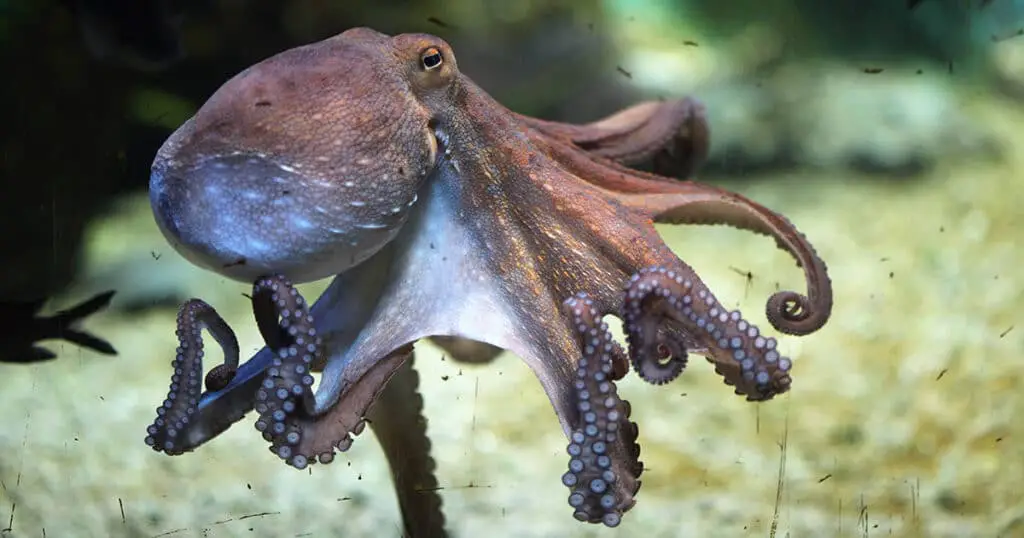
Conclusion
Octopuses, by nature, are solitary beings. Their reclusive tendencies and occasional displays of aggression suggest that their friendliness is context-dependent. While some individuals have exhibited curiosity and even engaged with humans in a seemingly friendly manner, this does not necessarily translate to an inherent friendliness.
Instead, it appears that octopuses possess a remarkable intelligence and adaptability that allow them to engage with their environment and other creatures in diverse ways. Their ability to solve complex problems, communicate through intricate displays, and adapt to various situations indicates a capacity for nuanced interactions.
In essence, octopuses are not easily pigeonholed as strictly friendly or unfriendly. Their behavior is a reflection of their intricate biology and the diverse challenges they face in the ocean’s depths. As we continue to study and appreciate these enigmatic cephalopods, our understanding of their social behavior and interactions may evolve, revealing more about the depths of their unique personalities.
Ultimately, whether octopuses are considered friendly or not may be a matter of perspective, as they continue to mystify and captivate us with their complex, fascinating lives in the underwater world.


